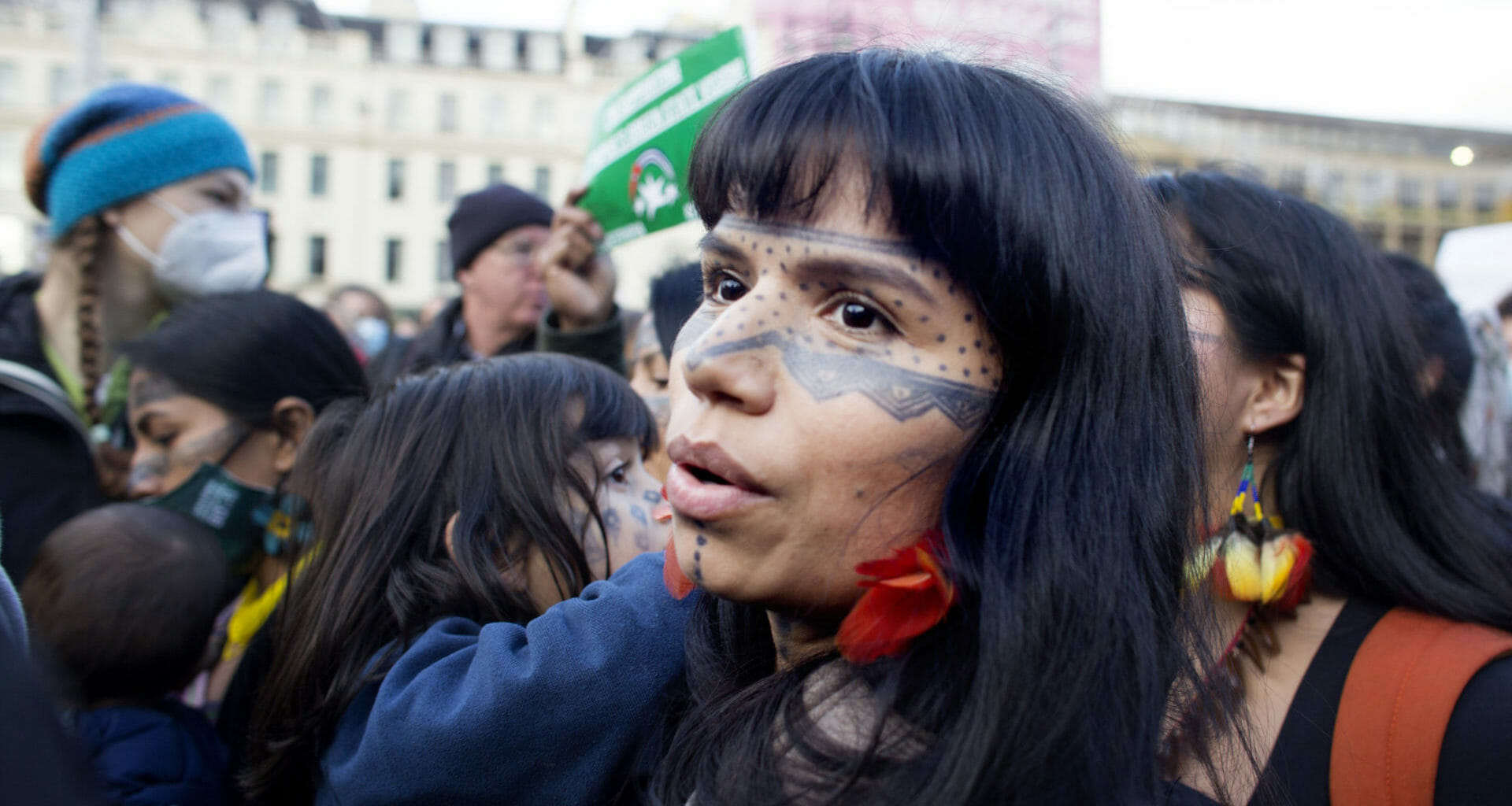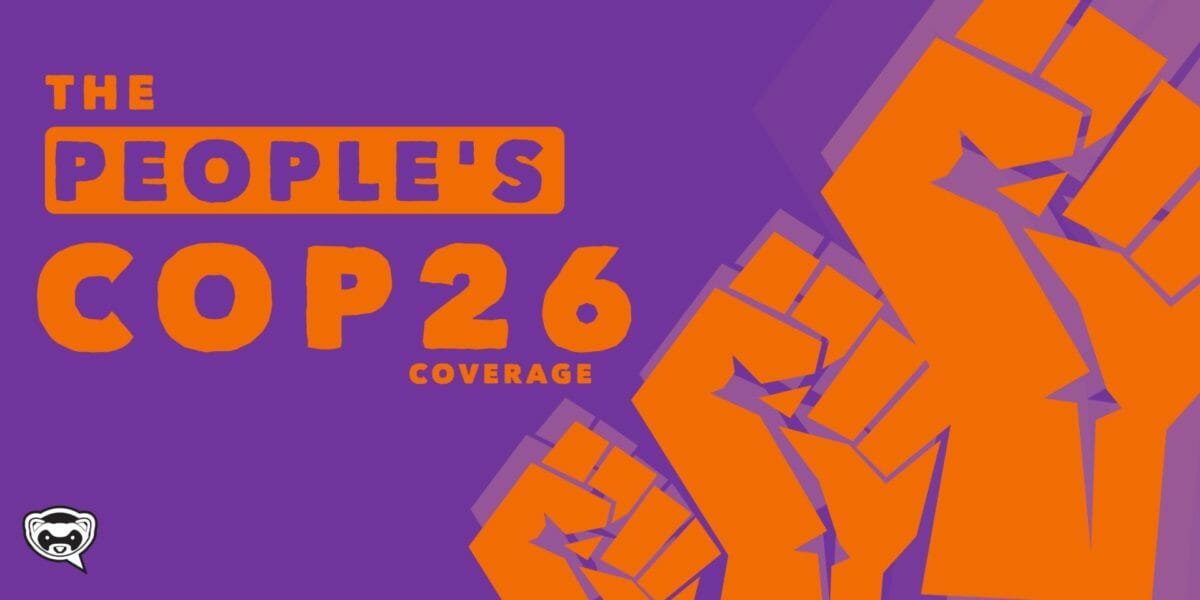
One hundred thousand people took part in the COP26 Coalition’s Global Day of Action for Climate Justice in Glasgow organisers said, with over 300 events taking place around the world.
The march from Kelvingrove Park to Glasgow Green was attended by people from across the world, and was one of the biggest Scotland has seen for many years.
Organised in a series of campaign blocs it included a huge variety of those fighting for climate justice, from landworkers to young people, workers and trade unions to advocates for Scottish independence and active travel. Feeder marchers and cyclist blocs also joined the event, which went on for several hours.
Asad Rehman, a spokesperson for the COP26 Coalition, said: “The people who have been locked out of this climate summit has their voices heard – and those voices will be ringing in the ears of world leaders as we enter the second week of negotiations.
“The climate crisis has resulted from our broken, unequal societies and economies. We must transform our global economies into ones that protect both people and our planet instead of profit for a few.”
Tuntiak Katan, co-ordinator of the Global Alliance of Territorial Communities, added: “Human activity is destroying the planet so we’ve gatheed all of the indigenous people from all over the world today in Scotland to say, ‘stop destroying our house’. This planet is the only one we have.”
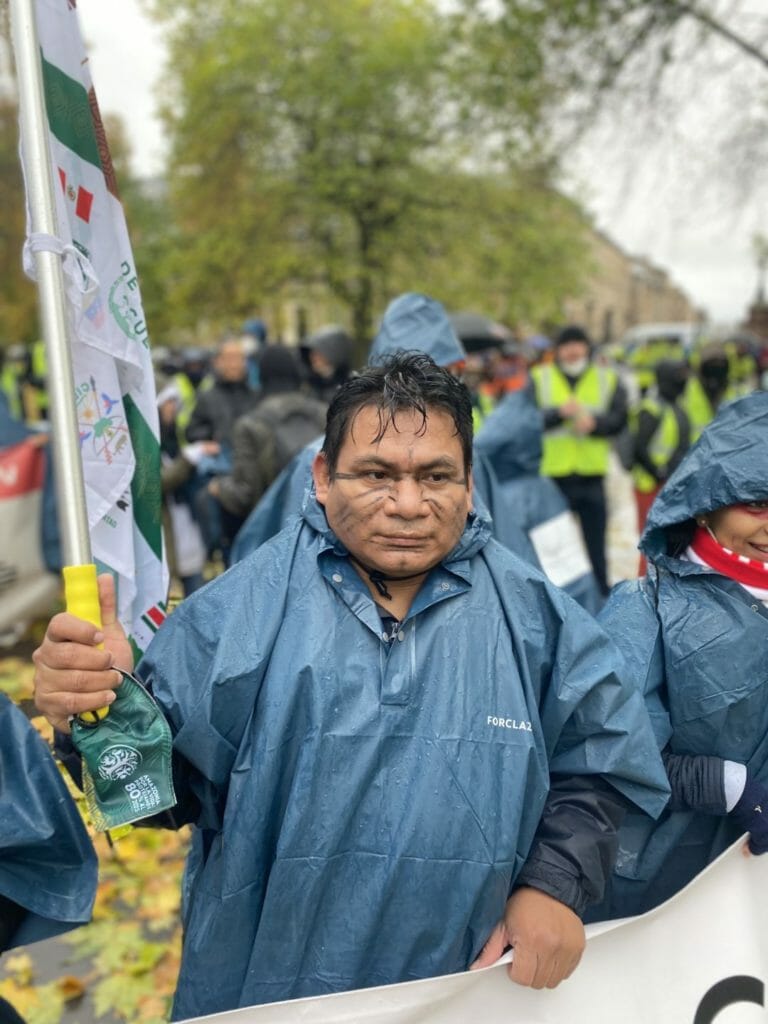
Glasgow SNP Councillor Graham Campbell, claimed it was important to make the link between racism and climate justice. “It feels like it’s reaching fruition in this anti-racism and migrant justice block,” he said.
“I don’t trust that this capitalist system will bring the solutions that we need because it’s perpetrated racist policies. The more power there is for the citizens on the streets, the better.”
About 3pm Police Scotland kettled a small group of protesters, believed to be young Communists for two hours.
Before the event, we asked some of those involved to explain why they are marching.
Antonia Alba: Indigenous bloc
Antonia Alba is in Glasgow for COP26 representing Conamuip, the national coordinating group of the women from the seven indigenous peoples of Panama.
To her this is principally a human rights struggle, which has taken her to places across the Americas including Washington DC. This is how Conamuip got involved in the Minga Indigena caucus, the representative group of indigenous people across the Americas, which has had a high profile at COPs for many years.
She says the needs of indigenous people are overlooked by law makers. “Laws are created by governments and assemblies without seeing the effects of these laws within indigenous communities,” she said. “They favour the interests of the powerful and those who have more.
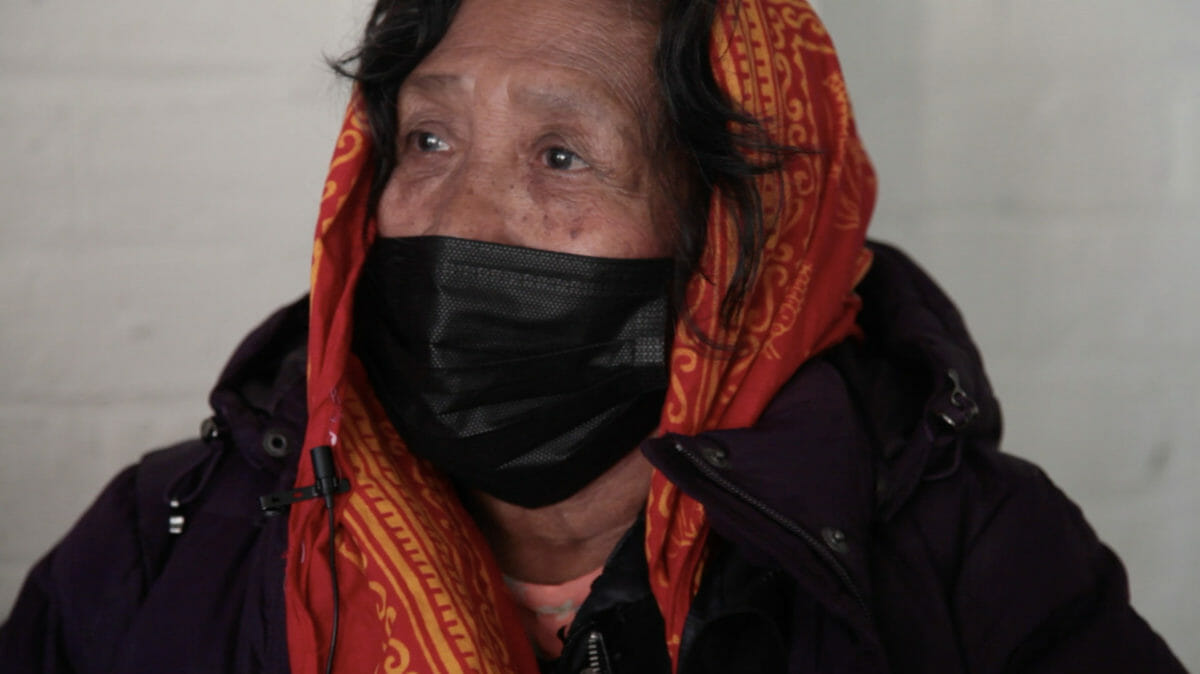
“Indigenous women who organise with me are the people with the least opportunities. We don’t have the power, money and ability to bring projects back to our areas and make things happen there.
“But we have trained them and we do have women with great knowledge. We are now working on sustainable agriculture and animal rearing projects in three indigenous areas, which helps women look after their families.”
This work though, is undermined by the impacts of climate change. “There’s more rain and flooding,” she added. Mudslides are washing what they have planted into the river. “Many houses are destroyed every time the water level rises, usually in remote areas where you can’t call for help. This means that people have to migrate.” It is especially hard for women who leave to find work.
And now when it floods there’s rubbish in the waters. The women give talks to raise awareness about the need to pick the rubbish out of the water – it’s what their grandparents and ancestors used to do – Alba said.
“But these days in the rubbish we find things from other places. The cruise ships that pass through throw rubbish into the sea and this arrives on our islands.” The problem is getting progressively worse.
Climate crisis is endangering her community’s way of life. But she is doubtful that COP26 will really make a difference. “COP is deciding things and then governments don’t do them,” she noted.
The problem, she believes, is at heart quite simple. “All indigenous peoples are united. We come from a communal way of life. Everything is for everyone. That’s what has been broken, that unitedness and connection. And this problem doesn’t only affect indigenous peoples – it affects you.”
Reel Mahmoud and Ruth Ann McCalla: Anti-Racist / Migrant Justice bloc
Reel Mahmoud is originally from Sudan, but has lived in Glasgow since “falling in love with the city” in 2001. “I went to a protest last weekend and I saw banners that said: “there is no climate justice without racial and migrant justice” and that struck such a chord with me and many others within the Sudanese community in Glasgow,” she said.
In recent weeks her energy has centred around Sudan’s violent coup by an armed militia, who took over on 25 October. Sudan had overthrown the dictatorship of Omar al-Bashir in 2019 with a campaign of marches and civil disobedience. But the recent coup has resulted in many deaths and violence, illegal detentions and 12 days of a telecommunications blackout.
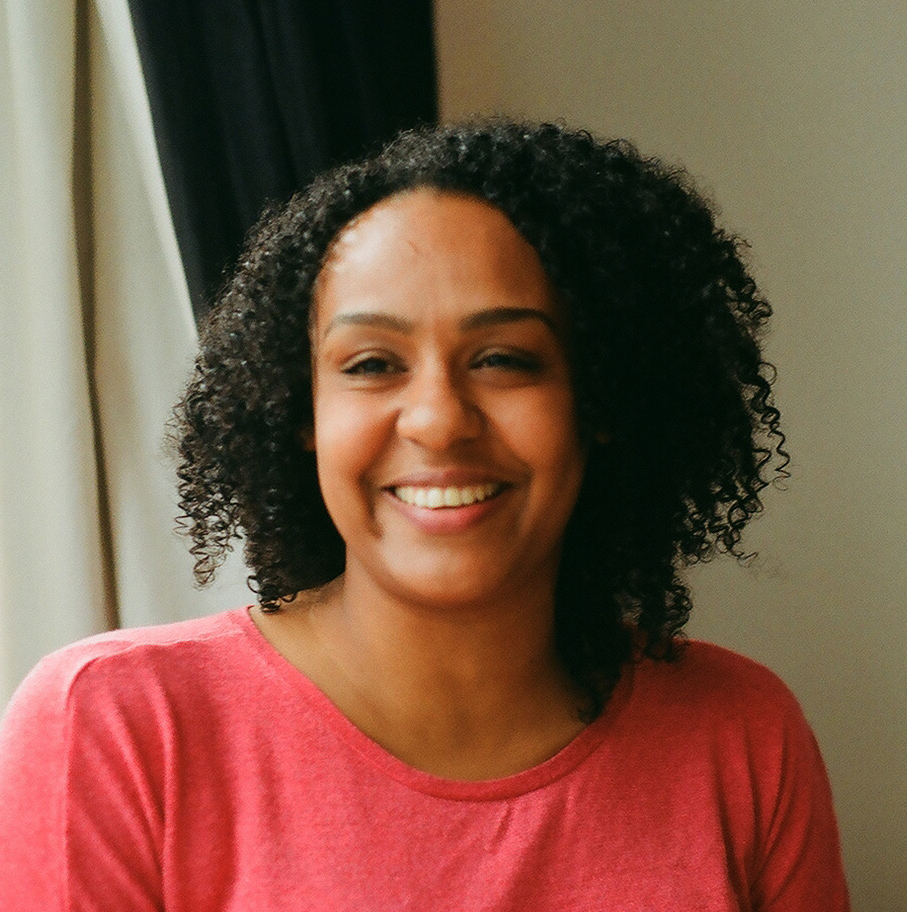
“Sudan, like many parts of the world, is suffering the burden of repeated military coups, heavy militarisation and denial of basic rights for the people,” she said. “ This has resulted in loss of lives and livelihoods throughout the country – poverty, loss of millions of acres of forests and agricultural land and a volatile economy.”
She feels it is impossible for Sudan to contribute to the global movement against climate change until it is free. “Our Prime Minister remains under house arrest today and cannot be part in these important talks,” she said. “We need our civilian government to be able to attend events like COP26 and have a voice.”
“I am marching because I want people who are interested in a fair and just world to know what is is happening and for this Sudanese regime to be given absolutely no legitimacy.” So the march for her is bittersweet. “I’m excited to be part of such a huge movement,” she added. “But I just pray that one day we don’t have to bond over our demand for basic rights.”
Ruth Ann McCalla, who came to Scotland from Jamaica in 2016 and was granted leave to remain three years later. She regards herself as a new Scot, but also want to highlight the global injustice of the distribution of resources and the role of colonialism and slavery in the climate crisis.
“If we’re going to talk about climate justice, and migrant justice, just think about somebody coming into your homeland, and taking away all the resources that you have, and nothing is left for you,” she said. “And when I am going to try to find something, I’m going to look elsewhere. Then you’re going to have a migrant crisis.
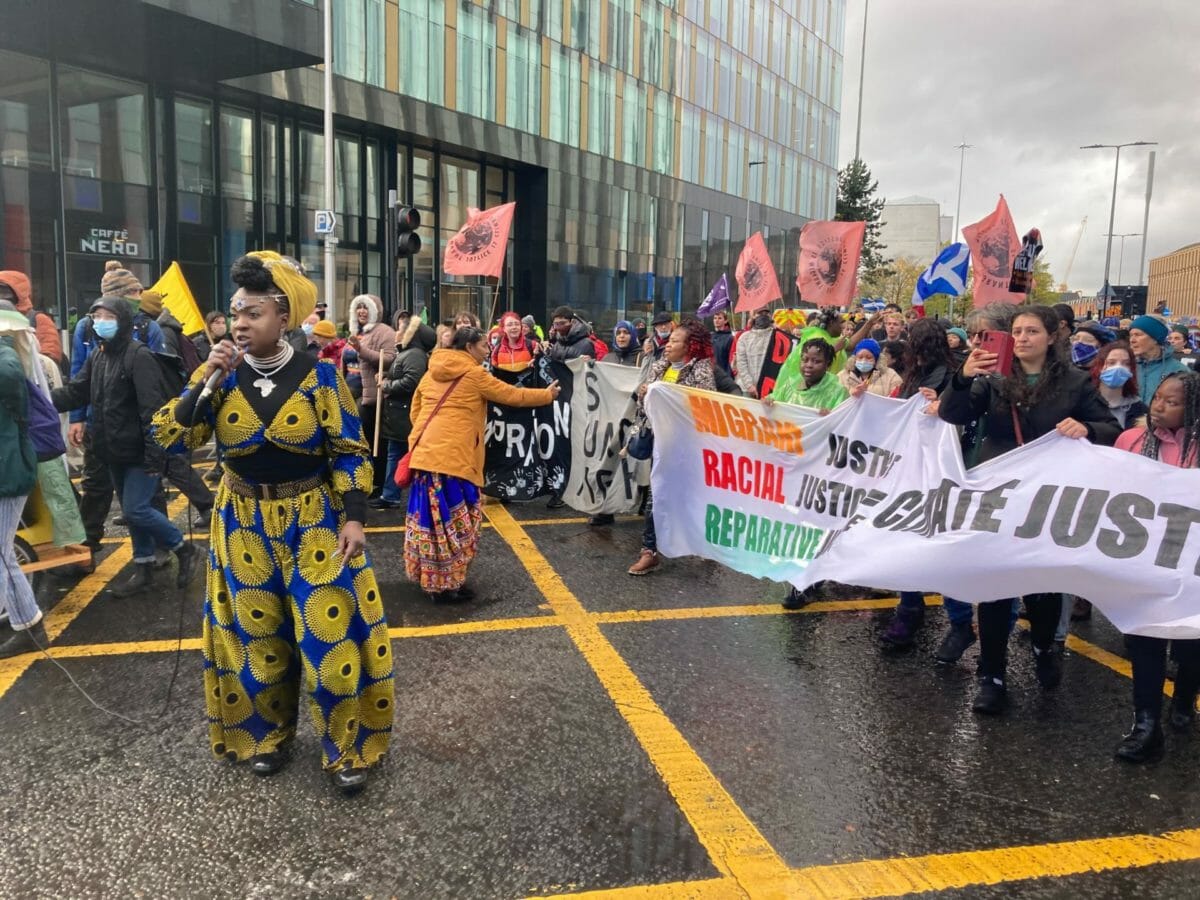
“This is what is happening to a lot of the migrants – people are trying to find somewhere to call home. It’s an imbalance. Where do we say enough is enough?”
She has seen the struggles of fellow migrants with the UK’s hostile environment policies up close. “It leaves them vulnerable,” she says. “It leaves them scared. The questions that are asked by the home office, leave you feeling you have nothing for yourself. Because you have to give them everything for them to make a decision on your life.”
In response she volunteers with Migrants Organising Rights and Empowerment, one of the block’s organisers. “We are trying to make sure people know you are not alone. We stand with you.”
Jenny Barlow: Nature and Diversity bloc
Jenny Barlow will travel to Glasgow from the market town of Langham in Dumfries and Galloway where she is the Estate Manager for the newly established Tarras Valley Nature Reserve.
The nature reserve currently comprises 5,200 acres of upland moor, ancient woodland, meadows, peatlands and river valley.
The land was managed as a shooting estate until March 2021 when it was transferred into the ownership of the local community following the success of a community £3.8m fundraising campaign. By next May they need to raise a further £2.2m to purchase the remaining 5,300 areas of land.
Barlow will spearhead the ecological restoration of the ex-grouse moor over the coming years which, she says, will not only increase biodiversity but also capture and store large amounts of carbon in the peaty soils.

“During the Covid19 pandemic, the story of how a local community came together to raise the funds for the land purchase caught the imagination of people from all around and highlighted what can be achieved when people work together for a common cause” she said.
“I’m part of one of the most ambitious and largest community led ecological restoration projects in Southern Scotland. We are living proof that communities can make a difference in the climate and extinction crisis.”
Barlow believes that projects like Tarras Valley Nature reserve replicated at scale: “We can rewrite the story and change what we leave future generations. But,” she continued, “the time for talking is done and now we need real solid transformative change.”
Her hope is that this march will “mark a turning point for us as a society, the point that we can look back and say that was the line in the sand. We’re absolutely done with empty promises and greenwashing.”
Fatima Uygun: Glasgow community bloc
One of Fatima Uygun’s earliest memories of activism goes back decades to a school strike back in Melbourne, where she was brought up as a Turkish muslim migrant, when she and fellow pupils marched to parliament to protest funding cuts to her school.
“‘I’ve been a socialist for as long as I can remember,” she said. “I had very progessive teachers and parents. And I grew-up suffering Islamaphobia so all of that drove it.”
Since then she’s been involved in many struggles into the occupation of Glasgow’s Govanhill Baths in 2001 by local residents after the council decided to shut its pool. In 2019 councillors agreed to sell it back to the Govanhill Baths Trust, they got funding to refurbish the building and work is ongoing.
People are coming from disparate backgrounds but they are united by the need to tackle climate change.
Fatima Uygaun
Meanwhile it’s taking on the environmental crisis in its Govanhill v Climate Change programme of events running throughout COP26 and Uygun will lead a community bloc feeder march from the nearby Queens Park to George Square, where it will join with the main march and continue on to Glasgow Green.
“The southside has had a tradition of freedom marches since protesting the Iraq and Afghanistan wars,” she says. “Local people were affected as Muslims and they were politicised. People like marching with their local community – that slogan about keeping it local is so important. People are coming from disparate backgrounds but they are united by the need to tackle climate change.”
She sees the fight against climate chaos as one intrinsically linked to the social struggles she has been involved in. “We can’t live in a world where we manage to win equal pay, to prevent discrimination against women when we’re still polluting the earth and creating climate chaos,” she added. “Working class people will bear the brunt of all it. It’s about joining the dots.”
Cover image by Angela Catlin.












